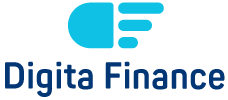It ‘s too much to learn to manage personal finances, besides for many of us, the traditional ordinary Financial consultants aren’t always an option. Instead, we now have digital money goal advice. This mix of technology and innovation is revising how we in habit as well all businesses can get financial advice. It is more convenient, affordable, and tailor able to individual situations than ever before.
Whether you’re a newcomer to digital finance or just curious as how it all works, letting me take you on a journey and explain what digital financial advice really is and whether you should use it can provide some insight. What are some benefits of obtaining digital money advice?
What Is Digital Financial Advice
The old fashioned way of getting financial advice was to go to a professional and discuss your situation. That’s time consuming and expensive. But times have changed!Fortunately there are now digital solutions which allow you to make investments on the cheap while also gaining in knowledge by listening to different perspectives–which is what robo-advisors aim for.

Robo advisors such as Betterment, Wealth front, and Acorns, all of which you may recognize, do not require large fees like traditional advisers. Instead new generation financial planning systems use automation to cater to the individual investor-unlike methods that served high-net-worth clients exclusively or had big entry barriers for lower income people.
But how does it actually work? Let’s unpack that.
How Digital Financial Advice Works
At its core, digital financial advice operates through algorithms and user data. Here’s a step-by-step look at how it usually works:
1. Gathering Financial Information
When signing up for a platform, users are asked to input key financial data such as:
- Annual income
- Monthly expenses
- Savings goals
- Risk tolerance level (how comfortable you are with potential losses in your investments)
These inputs are critical as they shape the recommendations the platform generates.
2. Algorithm-Driven Analysis
Once you input your data, the platform’s algorithm takes over. Using advanced machine learning models, it evaluates your financial situation against vast datasets to recommend strategies. For instance:
- It might recommend how much to invest monthly to save for retirement.
- It could create a diversified investment portfolio tailored to your goals.
3. Ongoing Monitoring and Adjustments
One of the standout features of digital tools is their capacity for continuous tracking. The platform monitors market trends and automatically adjusts your portfolio as needed to ensure it aligns with your objectives:
- If one sector underperforms, it might rebalance your investments.
- If market conditions shift unexpectedly, it can adjust strategies to minimize risks.
Some platforms even send notifications when users can save on fees or find better financial opportunities.

Benefits of Digital Financial Advice
Now that you understand how it works, let’s look at the core benefits of digital financial tools.
1. Accessibility for Everyone
Traditional advisors often have high service fees and require significant investment minimums. Digital financial advice eliminates these barriers, allowing anyone—from college students to retirees—to access financial planning.
2. Lower Fees
Unlike their human counterparts, robo-advisors don’t require salaries, making them significantly cheaper:
- Traditional advisors often charge around 1%–2% annually of your portfolio’s worth.
- Robo-advisors typically charge fees as low as 0.25%–0.5%.
This lower cost makes high-quality financial guidance possible for those who otherwise wouldn’t be able to afford it.
3. Convenience and Automation
Imagine having an assistant that:
- Automatically invests your money,
- Rebalances your portfolio at the perfect moment,
- And sends reminders to help hit savings goals.
Digital platforms handle these tasks seamlessly, saving users hours of manual effort. Plus, they’re accessible 24/7 from your phone or computer.
4. Personalized Insights
Thanks to powerful algorithms, many tools provide hyper-personalized advice. For instance:
- If you’re saving for a house vs. retirement, the platform will create distinct plans catered to each goal.
- Platforms like Betterment also factor in tax efficiency, helping users minimize tax losses on investments.
5. Data-Driven Decisions
Human advisors are knowledgeable, but even they can’t process the vast amounts of data modern tools analyze. Digital financial platforms leverage real-time data and historical patterns to make sound, evidence-backed recommendations, reducing the risk of emotional decision-making.
Limitations to Consider
While digital financial advice has plenty of advantages, no tool is perfect. Here are some limitations to keep in mind:
1. Limited Human Interaction
Sometimes, a real conversation with an expert is invaluable. If you’re dealing with complex financial situations like handling inheritance, starting a business, or tax intricacies, you might miss the nuance only a human advisor can provide.
2. One-Size-Fits-All Solutions
Though personalized, algorithms still have their limits. They’re best suited for straightforward goals, like general investing or saving. Complex life events requiring emotional understanding and nuanced advice may not be fully addressed by a robo-advisor.
3. Reliance on User Data
The accuracy of recommendations hinges on the quality of the inputs. If you fail to provide accurate or comprehensive information, the entire plan may misalign with your goals.
When You Should Consider Digital Financial Advice
Are digital financial tools the right fit for you? Here are a few scenarios where they shine:
- You’re Just Starting Out
If you’re new to managing finances or investing and want an affordable way to start, a robo-advisor is ideal.
- You Have Simple Goals
Digital platforms excel in streamlining savings, debt repayment, and investment portfolios for retirement or a home.
- You Crave Convenience
If your days are packed, having your finances managed automatically might be a game-changer.
On the other hand, if managing a multi-million-dollar portfolio or navigating complicated tax laws is your concern, a hybrid model offering both robo-advisors and access to human experts might work better.
Popular Digital Financial Advice Platforms
Here are some of the most trusted platforms worth exploring:
- Betterment
Known for tax-efficient investing and personalized financial plans.
- Wealth front
Ideal for goal-setting with features such as college savings plans.
- Acorns
Perfect for beginners, especially those who want to start small by rounding up spare change for investments.
- Vanguard Digital Advisor
A minimalist option for long-term retirement savings.
Getting Started with Digital Financial Advice Today
There’s more to digital wealth management than just a fleeting trend; it is a formidable tool giving everybody a chance at success in their money management. In addition to information on how to construct your first investment portfolio, questions about retirement planning and raising children’s future living expenses can all be addressed through the internet. Cash flow management is an important aspect of investing; for free or for very little money you can now prepare voluminous amounts of investment analyses yourself.
If you are prepared to master your money, start by looking for platforms which fit your investment goals. Begin small and flexible, and watch your wealth growing.
Remember, despite AI and algorithms might do a lot of heavy lifting, informing and participating in your financial decisions is the key to long-term achievement.
Happy investing!








What Is Digital Financial Inclusion
Programmable Wallets: The Future of Budgeting in the Age of Smart Contracts
Quantum Computing in Finance: Revolutionizing Banking’s Tomorrow
The Future of Financial Services Across Generations
Digital Twin Technology in Finance: How Virtual Models Are Transforming Risk Management
The Future of Personal Finance: Autonomous Finance and AI Money Management
AI Credit Scoring: Revolutionizing SME Banking and Digital Loans
AI Fraud Detection: How Banks Prevent Financial Crime in Real Time